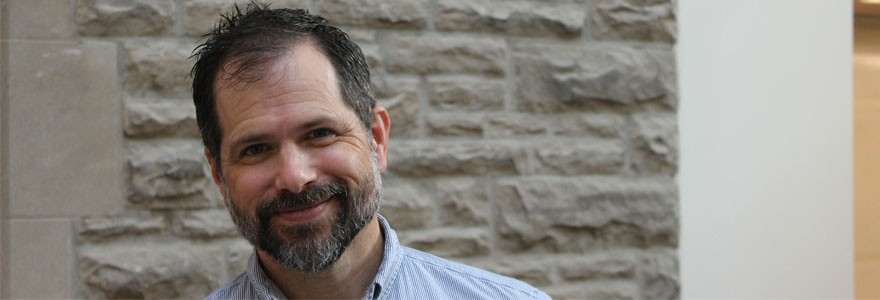News and Updates
Contact
Faculty of Social Science
Social Science Centre
Room 9438
Western University
T. 519-661-2053
F. 519-661-3868
E. social-science@uwo.ca
Understanding our changing abilities to learn
December 16, 2019
Photo and story by Rob Rombouts
As we age, our ability to learn new things changes. Paul Minda, Professor in the Department of Psychology and a core member of the Brain and Mind Institute, wants to understand the fundamental cognitive mechanisms that underlie these changes.
Minda has received a 5-year, $200,000 NSERC grant for a project entitled: “Understanding the Cognitive and Neurobiological Systems Involved in Categorization Behaviour.”
When people acquire new knowledge, they interpret it through what they already know and understand. The brain makes decisions on how to deal with new knowledge accordingly. In previous research, Minda examined how these processes differ for people at different ages.
Younger children and older adults learn new concepts in different ways than university-age individuals, said Minda, and often have more difficulty acquiring new knowledge or new, complex rules. The reasons for this differ among age groups.
Children have a smaller working memory capacity relative to adults, and this can inhibit the ability to acquire new knowledge. Older adults may have difficulty in cognitive exploration, and less ability to learn new kinds of knowledge. University-age adults can display more cognitive flexibility.
In his new research, Minda wants to look at brain areas to determine what might be underlying those differences, and understand how the differences occur at the cognitive and neuro-biological level.
Using electro-physiology, Minda will examine how the brain reacts when someone is learning to make a decision about a single object, and how to classify that object into existing concepts and areas of knowledge.
Through the use of functional Near-Infrared Spectroscopy (fNRIS), Minda will look at how different parts of the brain work together when people learn complex knowledge structures.
“Understanding how people learn new concepts is a critical building block to determine how people learn new languages, and new skills,” said Minda, “and how they use existing knowledge to make decisions.”
Along with developing a deeper understanding of how our brains work, the project will provide an opportunity for graduate students and post-docs to learn about the intersection of brain behaviour and computational work.
Minda also believes the insights gained through the research could improve the development of AI and computational functional systems.
“Using data to understand behaviour and brain systems, we can use that information to work on developing AI algorithms in a way that they interact with humans more naturally,” said Minda. “Being able to understand how humans act when learning would be a crucial part of that.”

